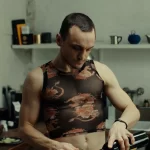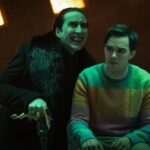Incredulous, by David Bax
For some reason, there remains a vague aura of prestige around horror films that are set more than 50 years in the past. And if you set it in England on top of that? Classy stuff indeed. Perhaps it’s the isolation due to the absence of our current technological developments. Perhaps it’s that people were more superstitious back then (or at least we tend to think they were). Personally, I think it’s the sense the characters are surrounded by – or are wearing – handcrafted objects that possess a tactile representation of history and the remnants of individual, long-absent humanity. In any case, films like The Others, this year’s The Woman in Black and Nick Murphy’s new The Awakening are all lent pedigree by their period trappings, sometimes much more than they deserve.
The Awakening features Rebecca Hall (The Prestige) as Florence Cathcart, who is a rarity in post-World War I England in that she is an educated woman. You can tell she’s educated because she doesn’t believe in ghosts. In fact, she doesn’t believe in ghosts so hard that she wrote a book about it. That’s why she’s approached by Robert Mallory (Dominic West), who works at a boarding school in the country which he believes is not only haunted but has already been the cause of one boy’s death. Florence goes to investigate.
In this first section, before Florence gets to the school, the film is heavy on both plot and character exposition. We learn in unsubtle ways that our protagonist was orphaned as a young girl and lost someone she cared about in the war. We also get lines like, “You can’t hunt what doesn’t exist,” just so it sinks in that she really, really doesn’t believe in ghosts.
In the middle section, thing begin to improve greatly. Murphy handles the atmosphere respectably and draws out both the dramatic tension and the tension between Florence’s beliefs (no ghosts, in case you forgot) and the seemingly inexplicable things she is seeing. There’s a sort of twin mystery going on here. If the ghost isn’t real, who is creeping around at night pretending to be one and for what reason? If the ghost is real, whose spirit is it and why is it in the school?
Unfortunately, when we reach the final act, the screenplay (by Murphy and Stephen Volk) allows itself to be overpowered by these mysteries and, frankly, to forget that it’s a horror film. The scares come to a full stop as our characters become consumed with getting to the bottom of the situation. To add disappointment, the puzzle’s answers are far more ludicrous than satisfying.
Murphy and Volk also weigh down the final reels with a foolhardy attempt to solidify the dozen or so themes that have been knocking about. This is a film that is, at any given moment, about fear, loss, guilt, shame and a number of other things. Ultimately, it seems to be concerned with getting over traumatic experiences by ceasing to repress them. But that conclusion is too little and too late to stick.
While there are a number of things worth enjoying in the film, its trudging third act is what you’ll remember. Perhaps that can be turned into a positive, though. The Awakening might scare you in spots but it gives you plenty of time to get over it before you have to leave the theater and step into the night.






























